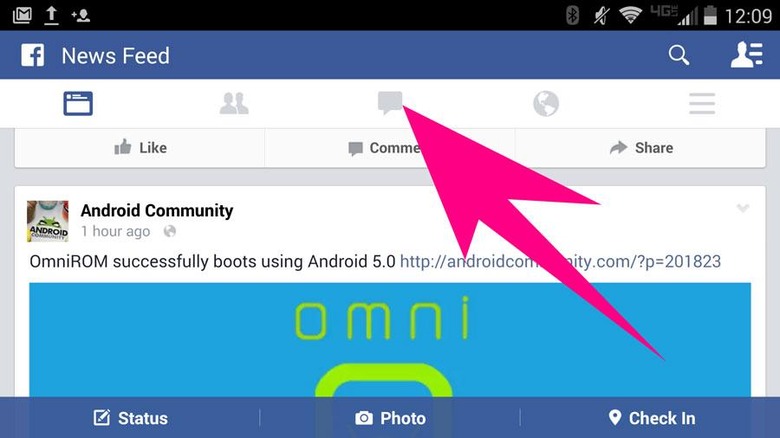Facebook Messenger's Inevitable Takeover
Back in August, Facebook messenger became obligatory. I ran a column called Yes, you DO want Facebook Messenger that many Facebook users were shockingly opposed to. But it's been barely 3 months and Facebook has already announced it: they've reached a tipping point. They already have 500 million users using – not just having downloaded – using Messenger each month. They're aiming to prove that because you do not pay money to use Facebook, you are the product – you don't have a choice in the matter. You need to download that app.
Facebook's Director of Product Management, Peter Martinazzi, spoke up this morning on the evolution of Facebook Messenger. The original Messenger launched with Facebook in 2011, allowing users to contact one another in a slightly more direct manner than they'd been able before.
Messenger launched as a stand-alone app YEARS before it was required. All the way back in August of 2011, in fact, Facebook launched "Messenger", angling it as a sort of "Group Messaging" app. More recently, Facebook founder and CEO Mark Zuckerberg was asked about Messenger in a Town Hall Q&A session, where he responded thusly:
Zuckerberg stated, "The first thing I want to do is acknowledge that asking everyone in our community to install a new app – Messenger – is a big ask. So I appreciate that that required work, that was a bunch a friction, and I just want to acknowledge that up front.
The reason why we wanted to do this is because we really believe that this is a better experience and we think that messaging is becoming increasingly important.So on mobile, each app can focus on doing one thing well, we think.

Zuckerberg continued: And the primary focus of the Facebook app today is newsfeed. Right? You open it and you can look at content that your friends are sharing, or public figures, and you can share things.
And messaging was this thing that people were doing more and more, there were more than 10 billion messages sent every day on Facebook – but in order to get to your messages you had to open up the app, which would take a few seconds, then go to a separate tab...So what we saw was that all of the messaging apps that people were using and that they relied on the most were, kind of, these dedicated, focused experiences. So whether it's the SMS app or iMessage on your phone, or something like WhatsApp, which has grown a lot in a lot of countries, they are these apps that are fast and are just focused on messaging.

Zuckerberg continued: You're probably messaging people 15-20 times a day, and having to go into an app, and waiting for it to load and go through a bunch of steps to get to your messages or send a message.
There's a lot of friction.And we felt that we couldn't deliver the best experience in doing that.We believe that messaging – it's one of the few things that people actually do more than social networking. In a lot of countries we'll see that maybe 85% of the people who are online will use Facebook, but maybe 90% or in some places 99% of people will use SMS or send text messages.So even though it was a short term, painful thing to ask folks to install a separate messaging app, we knew that we could never deliver the quality of experience inside, as just a tab in the main Facebook app. And that we needed to if we really wanted to start focusing on this well, we needed to build a dedicated and focused experience."
Sound good to you? Facebook Messenger is boing used by half a billion people every month. Your friends will be using it soon if they don't already – SMS won't be around forever, nor will text messaging. Have at it!
VIA: Facebook
